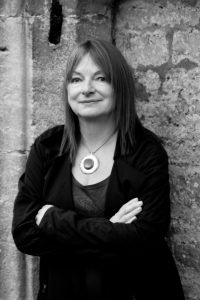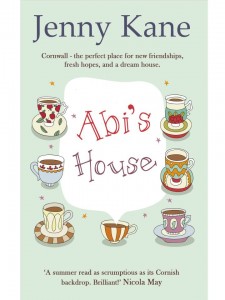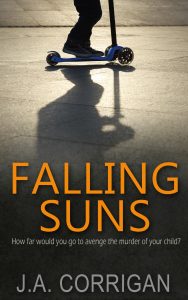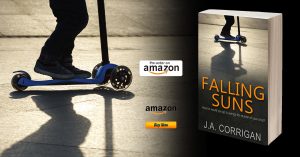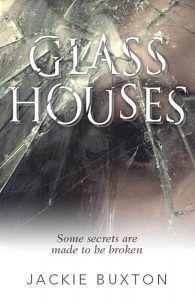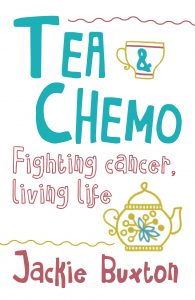MELODY BITTERSWEET AND THE GIRLS’ GHOSTBUSTING AGENCY by Kitty French
OUT NOW
UK: http://amzn.to/1TCU5Q7
US: http://amzn.to/1Z2CQpB
An absolutely hilarious, totally entertaining, spookily sexy read that you won’t be able to put down!
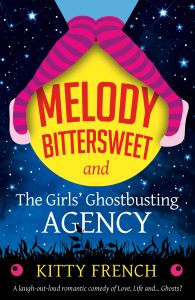
Life’s tricky for Melody Bittersweet. She’s single, she’s addicted to sugar and super heroes, her family are officially bonkers and … she sees dead people. Is it any wonder no-one’s swiping right on Tinder?
Waking up lonely on her twenty-seventh birthday, Melody finally snaps. She can’t carry on basing all of her life decisions on the advice of her magic 8 ball; things havegot to change.
Fast forward two months, and she’s now the proud proprietor of her very own ghostbusting agency – kind of like in the movies but without the dodgy white jumpsuits. She’s also flirting with her ex Leo Dark, fraternising with her sexy enemy in alleyways, and she’s somehow ended up with a pug called Lestat.
Life just went from dull to dynamite and it’s showing no sign of slowing up anytime soon. Melody’s been hired to clear Scarborough House of its incumbent ghosts, there’s the small matter of a murder to solve, and then there are the two very handsome, totally inappropriate men hoping to distract her from the job…
Welcome to Chapelwick, home of the brand new and hilarious Girls Ghostbusting Agency series, where things really do go bump in the night.
***
Chapter One
‘So, what do you do with your spare time, Melody?’
I look my date square in his pretty brown eyes and lie to him. ‘Oh, you know. The usual.’ I shrug to convey how incredibly normal I am. ‘I read a lot . . . Go to the movies. That kind of thing.’
I watch Lenny digest my words, and breathe a sigh of relief when his eyes brighten.
‘Which genre?’
‘Movies or books?’ I ask, stalling for time because, in truth, I don’t get much in the way of spare time to do either.
‘Movies. Action or romance? No, let me guess.’ He narrows his eyes and studies me intently. ‘You look like a sucker for a rom-com.’
‘Do I?’ I’m genuinely surprised. I’m five foot three and look more like Wednesday Addams than a Disney princess. Maybe Wednesday Addams is over-egging it, but you get the idea; I’m brunette and my dress sense errs on the side of edgy. I don’t think anyone has ever looked at me and thought whimsy. Maybe Lenny sees something everyone else has missed, me included. I quite like that idea, mainly because everyone who knows my family has a head full of preconceptions about me, based on the fact that my family are all crackers.
‘Four Weddings?’ He shrugs hopefully.
I nod, not mentioning that the only part of that particular movie I enjoyed was the funeral.
‘The Holiday?’
Again, I try to look interested and hold my tongue, because I’m sure he doesn’t want to hear that I’d rather stick needles in my eyes than ever watch an over-optimistic Kate Winslet drag some old guy around a swimming pool again.
I’m relieved when the bill arrives and we can get out of there, because so far Lenny has turned out to be a pretty stellar guy and somehow I’ve managed to convince him that I walk on the right side of the tracks. Maybe this time, things will be different.
Lenny pulls his dull, salesman’s saloon into the cobbled cartway beside my building and kills the engine. I don’t mind dull. In fact, my life could really use a bit of dull right now, so I shoot him my most seductive smile, cross my fingers that my mother will be in bed, and invite him in for coffee.
Oh, just when it had all been going so well. Why couldn’t I have just given him a goodnight kiss, with maybe the smallest hint of tongue as a promise, then sent him on his way? He’d have called for a second date, I’m sure of it.
But no. I got greedy, pulled him by the hand through the dark back door, placing my finger against my lips to signal he should be quiet as we tip-toed past my mother’s apartment and up the old wooden staircase to my place.
He rests his hand on my waist as I turn the key, and a small thrill shoots down my back. Look at me, winning at this being-an-adult thing today! Dinner with an attractive man, sparkling conversation, and now back to mine for coffee . . . and maybe even a little fooling around. It’s not that I’m a virgin or anything, but it would be fair to call my love life patchy of late. By ‘of late’ I mean the last two years, ever since Leo Dark and I called things off. Well, by Leo and I, I mean Leo called things off, citing conflict of interests. Ha. Given that he was referring to the fact that my mad-as-a-bag-of-cats family are the only other psychics in town besides him, he was, at least in part, right.
But enough of Leo and my lamentable love life. Right now, all I want is for Lenny not to know anything at all about my peculiar family, to keep seeing me as a cool, regular, completely normal girl, and then to kiss me.
‘You remind me of Clara Oswald,’ Lenny whispers behind me at the top of the stairs. ‘All big brown eyes and clever one-liners. It’s very sexy.’
Lord, I think he’s just brushed a kiss against the back of my neck! My door sticks sometimes so I shoulder it open, aiming for firm and graceful but, I fear, ending up looking more like a burly police SWAT guy ramming it down. Thankfully, Lenny seems to take it in his stride and follows me into my apartment. Then I flick on the table lamp only to discover that my mother is standing on my coffee table in a too-short, too-sheer, baby-blue negligee with her arms raised towards the ceiling and her head thrown back.
‘Shit!’ Lenny swears down my ear, clearly startled. He isn’t to blame. My mother’s a striking woman, ballerina-tall and slender with silver hair that falls in waves well beyond her shoulder blades. It isn’t grey. It’s been pure silver since the day she was born, and right now she looks as if she’s just been freshly crucified on my coffee table.
I sigh as I drop my bag down by the lamp. So much for me being normal.
‘Err, mother?’
Slowly, she takes several heaving breaths and opens her eyes, changing from crazy lady to almost normal human lady. She stares at us.
‘For God’s sake, Melody,’ she grumbles, taking her hands from above her head and planting them on her hips. ‘I almost had the connection then. He’s hiding out in the loft, I’m sure of it.’
I risk a glance over my shoulder at Lenny, who sure isn’t kissing my neck anymore.
He lifts his eyebrows at me, a silent ‘what the hell?’ and then looks away when my mother beckons to him like a siren luring a fisherman onto the rocks.
‘Your hand, please, young man.’
‘No!’ I almost yell, but Lenny is already across the room with his hand out to help her down. My mother eyes me slyly as she steps from the table, keeping a firm hold of Lenny’s hand.
‘Long lifeline,’ she murmurs, tracing her red talon across Lenny’s palm.
‘Mother,’ I warn, but my somber, cautionary tone falls on her selectively deaf ears. I expected nothing else, because she’s pulled this trick before. Admittedly, the standing-on-the-table thing is a new twist, but she’s got form in scoping out my prospective boyfriends to make sure they’ll fit in with our screwball family from the outset. Not that her romantic gauge is something to put any stock in; Leo passed her tests with flying colours and look how that ended up. I got my heart broken and he got a spot on morning TV as the resident psychic. Where’s the justice in that?
Look, we may as well get the clanky old skeleton out of the family closet early on here, people. It’s going to come out sooner or later, and despite my attempts to pull the wool over Lenny’s eyes, there’s never any running away from this thing for long.
My name’s Melody Bittersweet, and I see dead people.
It’s not only me. I’m just the latest in a long line of Bittersweets to have the gift, or the curse, depending on how you look at it. My family has long since celebrated our weirdness; hence the well-established presence of our family business, Blithe Spirits, on Chapelwick High Street. We’ve likely been here longer than the actual chapel at the far end of the street. That’s probably why, by and large, we’re accepted by the residents of the town, in a ‘they’re a bunch of eccentrics, but they’re our bunch of eccentrics,’ kind of way. What began as a tiny, mullion-windowed, one-room shop has spread out along the entire row over the last two hundred years; we now own a run of three terraced properties haphazardly knocked into one, big, rambling place that is both business and home to not only me, but also to my mother, Silvana, and her mother, Dicey. Gran’s name isn’t actually Dicey, it’s Paradise, officially, but she’s gone by Dicey ever since she met my Grandpa Duke on her fifteenth birthday and he wrote Dicey and Duke inside a chalk heart on the back wall of the building. He may as well have written it on her own racing heart.
‘Silvana!’
Speak of the devil. Does no one go to bed around here?
I open my door to find Gran on the threshold with her hand raised, poised to knock. I guess I should be glad she’s slightly more respectably dressed, if a floor-length, purple shot-silk kimono, bearing huge technicolor dragons could be considered as such. Her usually pin-curled gold hair is piled elegantly on her head and she wears a slash of fire-engine-scarlet lipstick for good measure. Most people couldn’t carry the look off, but thanks to her poise, confidence and couldn’t-care-less attitude, Grandma Dicey wears it with artful success. She glides past me without invitation and gazes at my mother and Lenny, who are still hand-in-hand on the rug.
God.
First thing tomorrow morning, I swear, I’m going to look for a new place to live, somewhere, anywhere, that is not in the same building as my mother and my gran. Don’t get me wrong, it’s a charming old place and I love my family dearly. It’s not even as if I don’t have my own space here, because, theoretically at least, I do. Mum and Gran have the ground floor apartment behind Blithe Spirits, and I have the smaller flat upstairs, at the back. In lots of ways this makes me fortunate; I get to have a nice little home of my own and stay close to my family. It would all be fine and dandy, were it not for the fact that my family are officially bonkers and liable to come up and let themselves into my flat – using the spare key I gave them for dire emergencies only – and embarrass the shit out if me.
‘Why is Silvana entertaining a man half her age in your flat?’ Gran looks from me to my mother. ‘You should have said you were expecting company, darling. I’d have gone out.’ She touches her hand lightly against her hair. ‘Put a towel on the doorknob or something, isn’t that the modern way to signal these things? Don’t come a knockin’ if the caravan’s rockin’?’
She looks spectacularly pleased with herself, and one glance at Lenny tells me that he knows he’s way out of his depth with these two and is in the process of writing me off as the worst date he’s ever had. His eyes slide from me to the door, and I can almost hear him begging me to let him go unharmed.
‘He’s not mum’s date, he’s mine. Or else, he was,’ I mutter, and then I’m distracted as a beer-bellied pensioner in a soup-stained shirt slowly materialises through the ceiling, his flannel trousers not quite meeting his bony ankles. Stay with me; I see dead people, remember? As do my mother and my grandmother, who also watch him descend with matching expressions of distaste.
‘Finally,’ my mother spits, dropping Lenny’s hand so she can round on the new arrival. ‘Two hours I’ve been chasing you around this bloody building. Your wife wants to know what you’ve done with the housekeeping she’d hidden in the green teapot. She says you better not have lost it on the horses or she’s had it with you.’
Grandma Dicey rolls her eyes. ‘I rather think she’s had it with him anyway. He’s been dead for six weeks.’
‘You’re a fine one to talk, given that you still sleep with your husband twenty years after he died.’ Mother flicks her silver hair sharply. Touché.
Lenny whimpers and bolts for my front door, turning back to me just long enough to splutter ‘something’s come up, gotta go,’ before he hoofs it out and down the stairs two at a time.
I listen to the outside door bang on its hinges and wonder what came up. Probably his dinner.
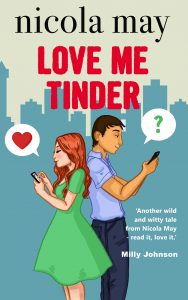


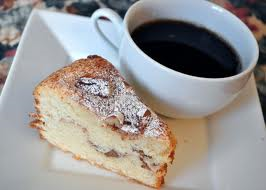
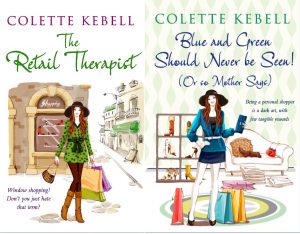
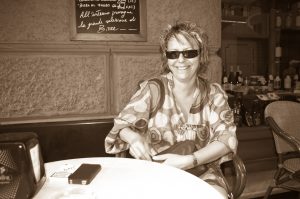
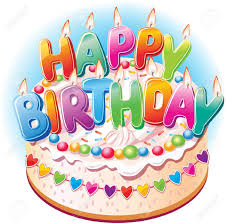
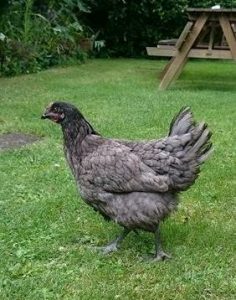
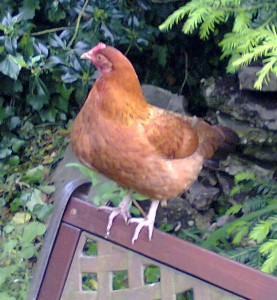 Pavlova was doing one of her nesting stints when Svetlana arrived and so they didn’t meet until the next morning, when Pav came to feed – she was a little put out, but feathers didn’t actually fly and since then, while not yet bosom (or chicken breast) buddies, peace has been declared and there is no battle of the beaks to rule the roost. They really couldn’t be more different in personality (yes, they do have personalities!) – while Pav is quite skittish and aloof, rather like a cat who tolerates our presence as long as we know our place and keep her well fed, Svet is really laid back and friendly and follows us around like an adoring puppy. She doesn’t even mind the Grands chasing her and also talks incessantly (which the old chick on the block has never done, apart from very loud crowing when she thinks it’s chow time) making sort of mewling noises, rather like a Moomin with feathers.
Pavlova was doing one of her nesting stints when Svetlana arrived and so they didn’t meet until the next morning, when Pav came to feed – she was a little put out, but feathers didn’t actually fly and since then, while not yet bosom (or chicken breast) buddies, peace has been declared and there is no battle of the beaks to rule the roost. They really couldn’t be more different in personality (yes, they do have personalities!) – while Pav is quite skittish and aloof, rather like a cat who tolerates our presence as long as we know our place and keep her well fed, Svet is really laid back and friendly and follows us around like an adoring puppy. She doesn’t even mind the Grands chasing her and also talks incessantly (which the old chick on the block has never done, apart from very loud crowing when she thinks it’s chow time) making sort of mewling noises, rather like a Moomin with feathers.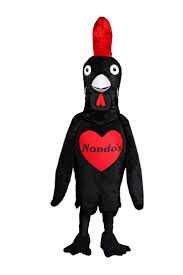 Toodles! NP
Toodles! NP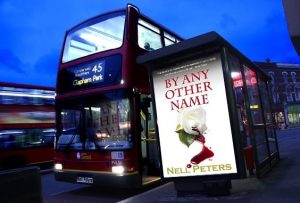
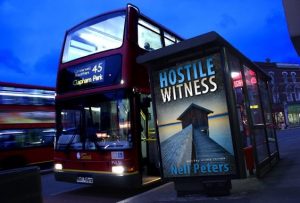
 What inspired you to write your book?
What inspired you to write your book?

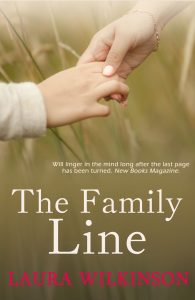

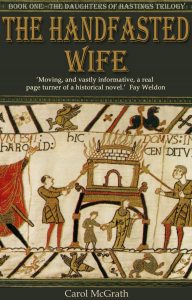
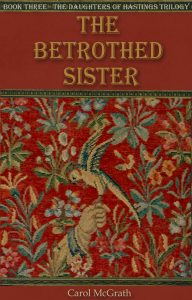
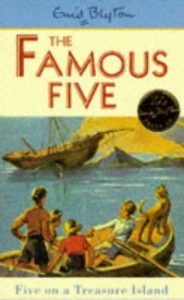

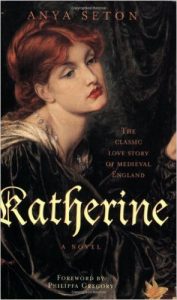
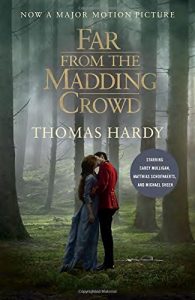
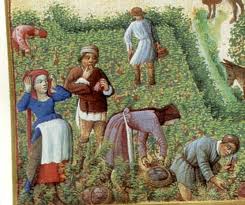 ***
***